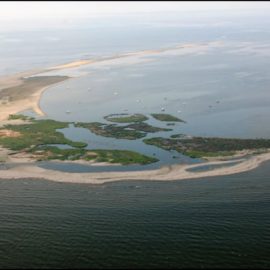
Governor John Bel Edwards’ $1.2 Billion initiative to begin flood mitigation projects is – where? Nothing has been started. Whose fault is it as they were proposed five years ago! The Federal Government of course as they have not released the monies. Constituents are upset!
“When it rains now, our people are wondering, ‘Why aren’t you doing something?’, and legitimately I can’t answer the question,” said Rep. Rick Edmonds, R-Baton Rouge, during a heated hearing before the House Committee on Appropriations on Tuesday. But officials with Edwards’ administration say the hold-up isn’t their fault. Instead, they blame the federal government, which appropriated the funds in 2018 but didn’t make them available for the state to spend until September of last year. “Every person that’s working on this understands the absolute urgency of spending this money quickly and well,” said Pat Forbes, executive director of the state’s Office of Community Development. “The delays are entirely in the federal process for getting the money available to us.”
theadvocate.com
The monies are now available and the State is working to get the projects started.
That got underway in March when Edwards selected 15 projects for $163 million in funding, including $42 million to construct channels along La. Hwy 22 in Ascension and Livingston parishes; $5 million to revitalize the LSU Lakes in Baton Rouge; and $10 million for residential elevations and buyouts in St. Tammany Parish. Another $100 million in projects will be selected in May from a pool of projects submitted by local governments. Most of those are so-called “no regret” projects, Forbes said, indicating that they’re unlikely to have an adverse downstream impact. That includes structures like detention ponds and retention areas.
More projects will be planned for once the State does more research into the “better bang for the buck” type of projects.
“We can’t keep doing things we did before and that’s funding projects that just send the water downstream to your neighbor and flood them,” Forbes said. “It’s very difficult to go spend money on projects when you can’t know that they won’t have adverse impacts on neighbors.”
The research will continue until 2023 although some areas, such as the coastal areas already have plans and they can be started from the existing plans.
Some lawmakers expressed disbelief over the time and resources needed to develop the hydraulic and hydrologic models. Rep. Raymond Crews, R-Bossier City, said that it should be easy to take existing data and plug it into those models: “That’s simple. I mean you can do that right now. I could pull out a computer and do that.” “I’m not a modeling expert, but I’m told by the Department of Transportation and Development folks that that’s not the case,” Forbes responded.
Other lawmakers have complained that their constituents have suffered enough, some more than once as the governor initially started this initiative in 2015.
Other lawmakers channeled frustrations from their constituents over the Watershed Initiative’s slow roll-out. Rep. Bill Wheat, Jr., R-Ponchatoula, said one woman had her home wiped out in 2016, and six months later, after rebuilding, her home flooded again. “Since then, every time she lays her head on the pillow at night and the rain starts happening, she’s wondering is this the next time I’m going to have to deal with this,” Wheat said. “It is extremely important for us to tell those folks what are we doing for you all. “As representatives of a population that was flooded, the frustration that you hear from us is nothing compared to the frustration experienced by the people,” said Rep. Tony Bacala, R-Prairieville. “There’s been a lot of talk, a lot of meetings, but not a lot of action.” Forbes assured lawmakers he’s just as irritated as they are and said that the federal funds they’re working with are exceedingly frustrating to spend, especially when its clear what risks Louisianans are facing. “It seems like we’re basking in bureaucratic bunkum,” said Rep. Jerome “Zee” Zeringue, R-Houma, concluding the hearing. “The challenge is: how can we get past this bureaucracy and get projects in the ground.”
Hoefully now that the Federal monies and here and that planning and action has been started, the complaints will be come thanks.



